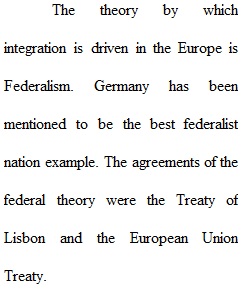


Q Chapter 3 of our Suder textbook is about EU "Enlargement and the Theories of Integration." For this week's initial post, answer the chapter review questions on p. 93--to wit: 1. Which integration theories drive integration the most? 2. Which integration theory would be supported by a large US corporation operating in the European market? Why? 3. Should long-time Member States contribute to EU structural funds that help enlargement countries financially, and that may then help to lure jobs and industries away to countries with cheap labour and low tax rates? If no, why? 4. Discuss the future of Europe. Would business benefit more from deeper or from wider integration? 5. It was reported by major analysts that the 10 enlargement countries of 2004 are losing out to India on wage costs and skilled labour advantages, and to China for R&D investment location. Why then are Baltic countries still booming?
View Related Questions